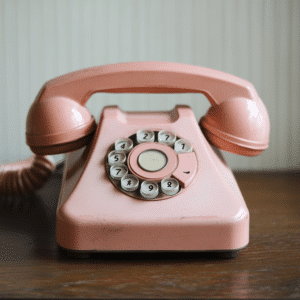As parents who might be struggling through the challenges of children dealing with addiction, we often look for ways to cope, heal, and grow personally. Journaling provides a powerful and accessible method for emotional expression and clarity. By exploring different journals for personal growth, we can harness the healing power of writing to address our burdens, reflect on our feelings, and ultimately transform our lives. These journals serve not just as a record of thoughts but as a launchpad for self-discovery and personal development.
Think about how journaling can help you make sense of your feelings. Perhaps you’re feeling anxious, lost in grief, or even hopeful for a brighter future. The act of putting pen to paper allows you to articulate those experiences without judgment, revealing insights about your triggers and aspirations. It creates a space where you can be honest with yourself about who you are and who you want to become. A well-chosen journal can play a massive role in your personal growth journey.
Here’s a look at seven standout journals that can aid in your journey toward personal growth.
Top 7 Journals for Personal Growth That Transform Your Life
Perfect for those short on time, this journal encourages gratitude and positivity in just five minutes a day. Each entry prompts you to list three things you’re grateful for along with a daily affirmation and a reflection on your day. This consistent practice can shift your mindset and improve overall well-being, making it a brilliant tool for parents navigating the ups and downs of addiction.
Developed from Julia Cameron’s work, this journal inspires creativity through the favored practice of morning pages—writing three pages of longhand in the morning. It’s a simple exercise that helps clear your mind, allowing you to process emotions and ignite creativity. This journal can be invaluable for expressing your feelings and fostering personal growth, especially when confronting your child’s challenges.
Created by Paulina & Kelly, this beautifully structured journal guides you through exploring your values, goals, and dreams. It includes sections for reflection, planning, and tracking your progress. By engaging with these prompts, you’ll create a personal roadmap for fulfillment, a vital component for any parent facing the tumult of addiction in their family.
Combining guided prompts with mindfulness exercises, this journal helps you hone in on present-moment awareness. Studies indicate that mindfulness significantly reduces stress and fosters resilience. For parents, this journal could be essential in managing the rollercoaster of emotions related to addiction and creating more balance in life.
This wonderfully crafted journal invites daily entries centered on gratitude for an entire year. Research shows that the consistent practice of gratitude can improve mental health and foster a positive outlook on life. This is particularly helpful when you’re grappling with loss or the ongoing struggles of addiction, reminding you of the brighter moments that persist.
With this unique journal, you create one list each week—whether it’s about personal goals or inspirations. This creativity and self-reflection enhance your understanding of what matters most to you. The act of list-making can also clarify your thoughts and feelings during challenging times, making it a fun and empowering way to promote personal growth.
Centered on the importance of self-care, this journal prompts you to reflect on your well-being and set aside time for yourself. It features activities and reflections to enhance emotional health, which is crucial as you navigate the challenging waters of addiction, either as a parent or as someone who has lost a child to addiction.

How Journals for Personal Growth Enable Self-Reflection and Healing
At the heart of personal growth is self-reflection—the process of understanding your thoughts, feelings, and motivations. Journals for personal growth create a safe space for you to express these inner workings, which can lead to authentic healing. Psychologist James Pennebaker found that expressive writing significantly improves both emotional and physical health.
By heartily writing in these journals, you’ll likely discover patterns in your thoughts and feelings. This awareness can serve not only as a roadmap to healing but also as a compass guiding you toward deeper self-knowledge. You’ll find that journaling helps monitor your mental state, allowing for adaptation and growth as you face life’s inevitable challenges.
The Role of Journals in Fostering Emotional Intelligence
Emotional intelligence (EI)—the ability to understand and manage your own emotions, as well as those of others—is essential for healthy relationships and personal success. Journals for personal growth can enhance this capability by encouraging you to reflect on emotional responses and the motivations behind them.
Through regular journaling, you engage in an ongoing dialogue with yourself. This introspective practice reveals personal triggers that affect your emotions and reactions, offering opportunities to cultivate resilience. Studies underscore that individuals with high emotional intelligence tend to navigate life’s hurdles with more grace, making journaling a powerful catalyst for personal and interpersonal growth.

Cultivating Mindfulness Through Journaling Practices
Practicing mindfulness—being present in the moment—significantly enhances personal growth. Journals like the Mindfulness Journal by Tessa West aid in fostering this skill by encouraging you to observe your thoughts and feelings non-judgmentally. By journaling, you can develop a more profound connection to the present, which is particularly beneficial for parents managing the emotional challenges associated with addiction.
Practices rooted in Acceptance and Commitment Therapy (ACT) highlight mindfulness as a fundamental principle. Research suggests that engaging in mindfulness techniques helps alleviate anxiety and depression, paving the way for happiness and fulfillment. Journaling can serve as an integrative practice to build tranquility and acceptance.
Creating a Sustainable Journaling Habit
For the true transformative power of journals for personal growth to manifest, consistency is essential. Developing a regular journaling routine can turn writing into a cherished part of your daily life, rather than a task you dread.
Here are some tips to cultivate a sustainable journaling habit:
Empowering Change Through Journaling
Embracing the power of journaling can lead to profound personal transformations. Each journal on this list serves distinct purposes and appeals to various needs, making personal growth accessible to everyone. When you commit to journaling as a practice, you initiate a journey of self-exploration, healing, and empowerment.
So, why not take that first step? Journals for personal growth are more than just places to record thoughts; they act as a bridge to improved emotional well-being and serve as guides through life’s inevitable trials. Discover the transformative power of journaling today and unlock new pathways to personal growth. Check out resources on Practicing forgiveness or explore mindfulness Practices for additional support. When facing the trials of addiction, remember, you’re not alone; positions of support abound as you delve into your healing journey.
Journals for Personal Growth: Trivia and Insights
The Power of Journaling
Did you know that people who journal regularly often report higher levels of happiness and satisfaction in life? Journals for personal growth serve as an excellent tool for self-discovery and reflection. Engaging with your thoughts on paper can be as evocative as a movie montage—one moment inspiring another. Just like the emotional depth found in Michael Landon Movies And TV Shows, journaling allows you to explore personal experiences and feelings in a meaningful way.
Moreover, writing isn’t just about putting pen to paper; it’s about connecting with your inner world. In fact, a study showed that expressive writing can aid in dealing with trauma and stress, steering one toward clarity. It’s akin to daily motivation For sobriety, tapping into a channel of encouragement and strength to face life’s hurdles. Whether you’re coping with loss or nurturing personal growth, making time for your journal can truly transform the way you perceive challenges.
Fun Facts You Might Not Know
Here’s a fun tidbit: Journaling is believed to date back over a thousand years! Ancient cultures often used it as a method for preserving thoughts and lessons for future generations. Fast forward to today, and we see that those monthly p reflections can reveal patterns in our lives, showing us where we’ve been and where we want to go. Keeping a journal can also lead to greater goal achievement, as writing things down significantly boosts your chances of reaching your targets.
Speaking of reaching goals, journaling can be as vital as grabbing a refreshing drink at Alamo Drafthouse boston after a long week. When you’re pouring your heart and mind into your journal, it’s like giving yourself a mini-therapy session. That’s why even celebrity couples, like Joe Jonas And Sophie turner, emphasize the importance of mental health—by sharing their struggles and tips for well-being, they inspire many to pick up a pen and start their own journey.
Cultivate a Habit for Growth
Finally, let’s talk about habit formation. It takes about 21 days to make a new habit, and journaling can be an integral part of this process. By setting aside a few minutes each day, you can create a routine that supports your personal development. So, grab that journal and write down your thoughts on overcoming challenges or achieving dreams. Over time, you’ll see growth that can rival the most uplifting movie plots or even the Dolby Atmos mixing toronto soundscapes—they both elevate experiences to the next level.
So, dive into journaling! Each entry is a step toward understanding yourself better and cultivating a vibrant, resilient future. You’re not just jotting down words; you’re crafting a powerful narrative that can transform your life.

What is a personal development journal?
A personal development journal is a space where you reflect on your goals, challenges, and achievements to better understand your journey. It’s like having a heart-to-heart with yourself, helping you track your growth and focus on what really matters to you.
How should I journal for self improvement?
To journal for self-improvement, just start writing about your thoughts, feelings, and experiences without holding back or worrying about perfection. It helps to ask yourself open-ended questions about your day-to-day life, what you want to improve, and any challenges you’re facing.
How does a journal entry help your personal growth?
Writing a journal entry gives you a chance to process what’s happening in your life and understand your emotions better. It can reveal patterns and insights that you might not notice otherwise, which is super helpful for your personal growth.
What is growth journaling?
Growth journaling focuses on tracking your progress over time, reflecting on your experiences, and setting intentions for what you want to achieve. It’s all about recognizing how far you’ve come and where you want to go next.
What is 5 personal development?
Five personal development areas often include emotional, social, physical, intellectual, and spiritual growth. Each area plays a role in helping you become a well-rounded person and can help guide your journaling.
What is a personal learning journal?
A personal learning journal is where you record what you learn from experiences, whether it’s through books, classes, or everyday life. It’s a way to keep track of insights and knowledge that can help you grow over time.
How to journal to change your life?
To journal for life change, start by focusing on specific areas you want to improve, then regularly write about your feelings, progress, and setbacks. This practice can motivate you and help you keep your eyes on your goals.
What is the difference between a journal and a diary?
The main difference between a journal and a diary is that a journal often focuses on personal growth, reflections, or specific topics, while a diary usually records daily events and feelings. Journals tend to be more introspective and goal-oriented.
What is junk journaling for beginners?
Junk journaling for beginners is about using materials like old magazines, photos, and scraps to create a fun, artistic journal. There are no rules—it’s a great way to express yourself and tap into your creative side.
Is keeping a journal good for personal growth?
Keeping a journal is definitely good for personal growth as it encourages self-reflection and helps you process emotions. It can lead to insights that support your journey towards becoming a better version of yourself.
What are good journal prompts?
Good journal prompts can include questions like “What am I grateful for today?” or “What challenges am I facing, and how can I overcome them?” These prompts spark reflection and can guide your writing.
How do I write a journal about myself?
To write a journal about yourself, start by jotting down your thoughts, feelings, and experiences. Don’t forget to include your dreams, fears, and goals to create a fuller picture of who you are.
How to start journaling for self-growth?
Starting journaling for self-growth can be as easy as setting aside a few quiet minutes each day to write. Focus on what’s on your mind, your achievements, and areas where you want to improve.
What is a growth mindset journal?
A growth mindset journal is a tool that encourages you to reflect on challenges and failures while recognizing that they’re part of learning and growth. It helps shift your perspective to embrace change and learn from experiences.
What is a developmental journal?
A developmental journal is a record of your growth in various areas, including skills, experiences, and reflections. It serves as a way to document progress and set new goals over time.
What do you write in your personal journal?
You write in your personal journal about your experiences, emotions, goals, and challenges. It’s your space to be honest with yourself and track your journey of self-discovery.
What is a personal development record?
A personal development record is a collection of your goals, achievements, challenges, and the steps you’ve taken to better yourself. It helps you see the bigger picture of your personal growth journey.
What is a developmental journal?
A developmental journal is similar to a personal development record, focusing on documenting learning and growth experiences over time. It can help you reflect on what you’ve learned and how you’ve evolved.
How do I write my personal development?
To write your personal development, outline your goals, challenges, and achievements, and regularly reflect on your experiences. This helps keep your journey organized and meaningful.




























